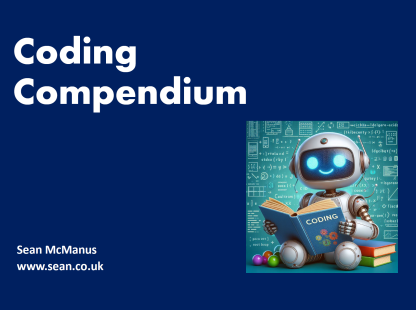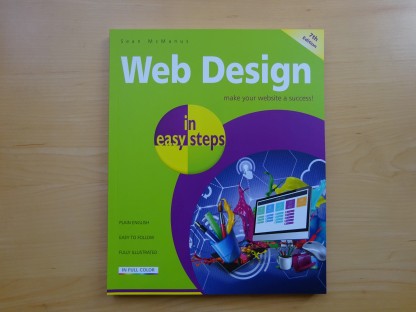
Coding Compendium
A free 100-page ebook collecting my projects and tutorials for Raspberry Pi, micro:bit, Scratch and Python. Simply join my newsletter to download it.
Sean McManus interviews usability guru Jakob Nielsen about the words on your website and how to make them work harder
How important are the words on a website?
They are the most important single element on the site, since the content is the reason users are visiting the site in the first place. Other elements are important too: images can be valuable content as well, and search and navigation are essential for allowing users to find the content in the first place. Still, the words carry the vast proportion of the communicative value of the Web. If the content is no good, users will quickly abandon a site and never return.

Press photo of usability guru Jakob Nielsen
What mistakes do people make when writing for the Web?
A very common mistake is to forget about the content when redesigning a website. It's amazing how often I see proposals for new designs that provide countless alternative treatments of the graphics and represent the text with a block of Greek gibberish. And we know from testing that users pay much more attention to the content than to the graphic design. As long as the site looks basically good, the words matter much more.
The other common mistake also falls in the area of under-estimating the importance of content. It's very common to recycle print content and not write for the special conditions of the Web. The very worst online content comes in the form of fat PDF files. For example, in our tests of intranet usability, users often failed when trying to find the information they needed in hundred-page employee handbooks that had been put on the intranet as a single, unconverted PDF file. Much better to spend the effort to convert the information into a navigable space of smaller web pages that are laid out for online reading and not for print.
What's different about writing for the Web compared to writing for print?
Reading is very different, which means that the writing should be different as well. Users are more non-linear on the Web, both in the small (when they scan through the text on the pages) and in the large (when they follow links between pages instead of turning them in sequential order). Online users are highly impatient and need to determine in a few seconds after arriving on a new page whether it's something they want to actually read. Thus, every single page must clearly say what it is about in the first few lines.
How important is good grammar?
Web writing doesn't always need perfect traditional grammar and full sentences. Short works. Sometimes, anyway. Still, good command of the language is important for credibility, which is important online where a company only exists in the form of pixels on the screen. Typos, grammatical errors, and poor language all reduce users' trust in a website, because it makes them feel that the website is not as professional or as well maintained as a site without these mistakes.
How can people use markup features like bulleted lists and headings?
Because users like to scan the text on web pages, headlines can break up the page and direct users toward the sections they want to read. Bulleted lists pull people in and support the common desire to quickly move down the page. In contrast, heavy blocks of dense text are very intimidating and often make people give up on a page because it feels too difficult to scan.
What abuses of markup should people be wary of?
Don't make the entire page into a long bulleted list. That's just as overwhelming. Break up the lists with connecting prose and headings. Headings should be short or they change from being headlines to being prose. And despite being short, headings must be communicative and clearly denote what's covered in each section. Resist the temptation to write "clever" headings, especially for the main title of the page which will be reused in search engines as the main way your page is represented to the searching public.
What tips can you offer on 'great' Web writing?
The ultimate tip is to run a short user test where your own customers interact with your own pages and react to your own content. Otherwise, just remember this one tip: cut the word count. Less is more.
Related links on this site
Links on other sites
© Sean McManus. All rights reserved.
Visit www.sean.co.uk for free chapters from Sean's coding books (including Mission Python, Scratch Programming in Easy Steps and Coder Academy) and more!

A free 100-page ebook collecting my projects and tutorials for Raspberry Pi, micro:bit, Scratch and Python. Simply join my newsletter to download it.

Web Design in Easy Steps, now in its 7th Edition, shows you how to make effective websites that work on any device.

Power up your Microsoft Excel skills with this powerful pocket-sized book of tips that will save you time and help you learn more from your spreadsheets.

This book, now fully updated for Scratch 3, will take you from the basics of the Scratch language into the depths of its more advanced features. A great way to start programming.

Code a space adventure game in this Python programming book published by No Starch Press.

Discover how to make 3D games, create mazes, build a drum machine, make a game with cartoon animals and more!